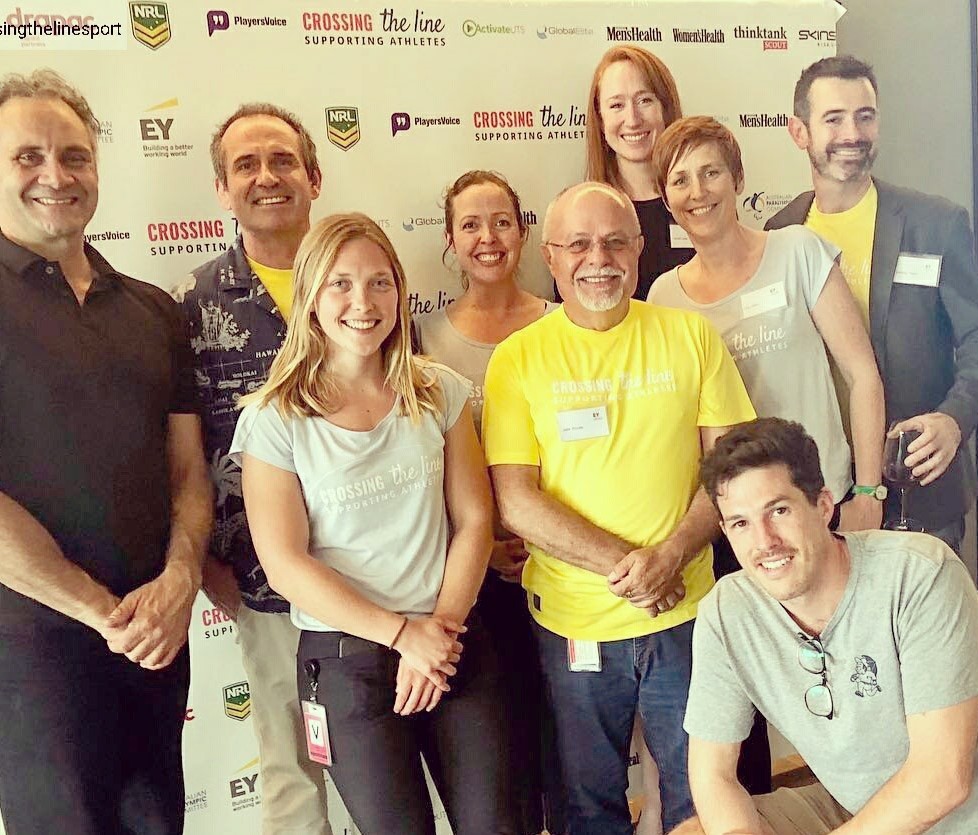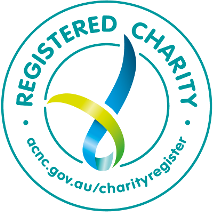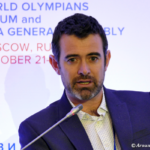
I was talking to a friend recently about how quickly this decade is going and was reminded that Crossing the Line will be three years old this month!
It prompted me to reflect on the past three years and to tell you a little about the direction we’re heading in.
Where it all began
Crossing the Line was created after I drastically underestimated how challenging athlete transition would be. This was partly due to my own naivety and partly due to the fact that nobody was really openly talking about it at the time. I thought I was relatively well prepared; it was still really tough!
The original idea was for Crossing the Line to create a corner of the internet specifically for the sporting community, much like a “lifeline” but targeting sport- or life-after-sport-related issues. Our original tagline “Athlete transition…let’s talk about it” reflected our concentration on retired athletes and how we could help them through some of the issues they face, both online and face to face.
Our current tagline “Supporting athletes” represents how we expanded that assistance to current performers and young people just beginning their sporting journeys, to help prevent issues before they arise. We work with numerous Olympic and professional sporting teams to help athletes at all stages of their sporting careers develop healthy head spaces and manage a dual pathway (whether education or career). We have also worked with peak sporting bodies, such as the International Olympic Committee, World Olympians Association and ASADA, to bolster their education programs.
The challenges of athlete wellbeing
The scope is big. In three years, I have seen the industry change dramatically. The sporting industry at large has woken up to the important impact athlete wellbeing can have on both athletes’ performances and their lives beyond sport. Comprehensive wellbeing programs, many which have quietly existed for a few decades, have come to the fore across many codes. The challenge lies in increasing the engagement of athletes in these programs.
Ultimately, it is up to the athlete to look after their own future; and now, more than ever, the infrastructures are in place to help them maintain healthy minds and develop their futures beyond sport. The challenge will always lie in whether or not the athlete and/or their coaches put value in their future, or really believe that having an identity away from sport is beneficial to their performance.
Four years of full-time training of one skill for one goal can easily become eight. More often than not, athletes only realise the downside of that singular focus when they decide to retire. Personal investment in the long game of life is crucial and it doesn’t have to come at the expense of sporting achievement. In fact, the research is now showing that performance is enhanced by having an identity way from training and competition.
Going forward
We have always been a not-for-profit organisation and we have recently applied for full charity status. Our goal remains to be recognised as the independent, open source, safe space for athletes to receive help and guidance when they need it most and to keep the conversations around athlete mental health alive and thriving.
On top of what we are already doing, our current plans include:
- Establishing ourselves as the “Lifeline” of sport, with 24/7 hotline support.
- Delivering grassroots education on mental health and dual career to young up-and-coming athletes, with our new Groundwork workshops.
- Building out our mental health and transition support to fill the gap that sporting organisations can’t.
To do all of this, we are building support from partners, sponsors and patrons. We have been running on the smell of an oily rag for the past three years(!) but we are now in a position where we are clear in the direction we need to take in order to support athletes and sporting associations where they need us most, even more than we already do.
Crossing the Line would not exist if it wasn’t for the support of founding sponsors such as ActivateUTS and Drapac Capital Partners. We also have a Board of Directors who give up their time, energy and expertise to help us to continue to move forward. I have been blessed to have the daily support of a passionate team, and we’re all looking forward to the next three years of making a difference in the minds and lives of athletes.


